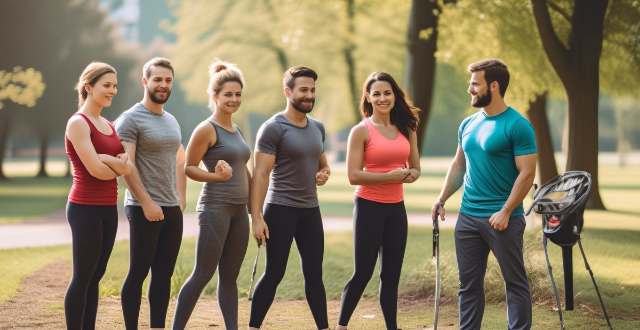Goal Setting

What are the benefits of setting goals for studying and how do they impact motivation ?
The benefits of setting goals for studying include increased clarity and direction, improved motivation through short-term milestones and visual progress tracking, better time management with efficient planning and reduced procrastination, enhanced performance via targeted learning and a feedback loop, and stress reduction due to predictability and a sense of control. These advantages collectively contribute to heightened motivation, both immediately and in the long term, making goal setting an essential strategy for effective and enjoyable learning.

What are the best strategies for setting achievable learning goals ?
The text provides strategies for setting achievable learning goals, which include starting with a clear objective, breaking the goal into smaller steps, setting realistic timelines, tracking progress, and being flexible and open to change. The purpose of these strategies is to help individuals stay focused, motivated, and on track in their learning journeys.

What are the best practices for setting a personal budget ?
The article outlines best practices for setting a personal budget to achieve financial stability and success. It suggests determining income, listing expenses, setting financial goals, creating a budget plan, tracking spending, and adjusting the budget as needed.

Are there any risks associated with high-intensity workouts for seniors, especially in a group setting ?
High-intensity workouts in a group setting pose certain risks for seniors, including cardiovascular strain, musculoskeletal stress, overexertion and fatigue, and social and psychological factors. To minimize these risks, seniors should consult with a healthcare professional, start slowly and gradually increase intensity, focus on low-impact activities, stay hydrated and monitor temperature, wear appropriate footwear and clothing, listen to their body, and seek supervision from qualified instructors.

What role does mental training play in improving sports skills ?
The text discusses the role of mental training in enhancing sports skills. It outlines key points including mental toughness, visualization techniques, goal setting, self-talk, and concentration skills. Mental toughness helps athletes handle pressure, recover from setbacks, and persist through challenges. Visualization techniques can program the subconscious, reduce anxiety, and increase motivation. Goal setting clarifies objectives, tracks progress, and maintains motivation. Positive self-talk boosts confidence, enhances performance, and regulates emotions. Concentration skills block distractions, maintain attention, and improve decision making. The conclusion states that mental training is an essential component of overall athletic success.

How does team sports impact mental health compared to individual sports ?
This article explores how team sports impact mental health compared to individual sports. It highlights the social support and belongingness provided by team sports, which can reduce feelings of isolation and loneliness. The article also discusses how team sports promote accountability and responsibility, helping individuals develop discipline and self-control. Additionally, it emphasizes the importance of goal setting and achievement in team sports, which can boost self-esteem and confidence. Overall, the article concludes that team sports have a significant impact on mental health compared to individual sports due to their social aspect.

What is the significance of setting short-term versus long-term climate targets ?
The article emphasizes the importance of setting both short-term and long-term climate targets to effectively address climate change. Short-term targets focus on immediate actions, creating urgency, measurable progress, immediate benefits, and building momentum for more ambitious goals. Long-term targets ensure sustainability, deep decarbonization, adaptation, and global cooperation. Achieving these goals is crucial for mitigating the worst effects of climate change and creating a more resilient future.

Who are some of the top goal scorers in this year's football season ?
This year's football season has seen exceptional performances from players across the globe, with Erling Haaland, Lionel Messi, Karim Benzema, Cristiano Ronaldo, and Robert Lewandowski leading the pack as top goal scorers. These players have not only showcased their individual talents but also played a crucial role in their teams' successes throughout the season.

How do I set realistic and achievable career goals ?
Setting realistic and achievable career goals is crucial for professional development. Here are the steps to do it effectively: 1. Self-Assessment: Understand your strengths, weaknesses, interests, and values. 2. Research and Exploration: Investigate qualifications, job market trends, and network with professionals. 3. SMART Goals: Set Specific, Measurable, Achievable, Relevant, and Time-bound goals. 4. Break It Down: Divide long-term goals into smaller, manageable short-term objectives. 5. Regular Review and Adjustment: Assess progress, make adjustments, and stay open to new opportunities.

How can self-assessment help me set realistic goals for myself ?
The article discusses the importance of self-assessment in goal setting. By identifying one's strengths and weaknesses, evaluating progress, and setting realistic goals, individuals can increase their chances of success and avoid feeling overwhelmed or discouraged. The article provides tips for each step of the self-assessment process, including breaking larger goals into smaller steps, prioritizing based on importance and urgency, being specific about what is wanted to achieve and why, considering potential obstacles, and developing strategies to overcome them. Ultimately, self-assessment helps individuals gain a better understanding of their capabilities and what steps need to be taken to achieve their goals.

What is the role of sports in character building during adolescence ?
The article discusses the significant role sports play in character building during adolescence. Sports contribute to physical health and self-discipline, teamwork and social skills, goal setting and perseverance, responsibility and time management, emotional intelligence and stress management abilities. Engaging in sports not only benefits young individuals physically but also shapes their personality and values, preparing them for success in all aspects of life.

What techniques and strategies are commonly used in sport psychology counseling ?
The text discusses techniques and strategies in sport psychology counseling, which include goal setting, visualization and imagery, self-talk and affirmations, mindfulness and meditation, and breathing techniques. Goal setting helps athletes stay motivated and focused, while visualization and imagery build confidence and reduce anxiety. Self-talk and affirmations enhance self-confidence and motivation, while mindfulness and meditation improve mental clarity and resilience under pressure. Breathing techniques manage stress, anxiety, and tension. Incorporating these methods into training and competition preparation can help athletes achieve their full potential.

In what ways do sports promote self-discipline and self-control ?
Sports play a crucial role in promoting self-discipline and self-control by teaching goal setting, time management, perseverance, impulse control, delayed gratification, and stress management. These skills are essential for success in all areas of life, including personal and professional relationships, academics, and careers. By participating in sports, individuals develop valuable character traits that can lead to long-term success and well-being.

How does team sports contribute to personal growth and development ?
Team sports contribute significantly to personal growth and development by helping individuals develop various skills, qualities, and values essential for success in all aspects of life. These include communication skills, leadership abilities, teamwork and collaboration, discipline and responsibility, goal setting and achievement, emotional intelligence, and time management. Participating in team sports can help individuals become well-rounded individuals who are prepared for whatever challenges lie ahead.

What is the impact of sports programs on the leadership development of students ?
Sports programs in educational institutions have a profound impact on the leadership development of students. These programs provide opportunities for students to develop essential leadership skills such as teamwork, communication, decision-making, and problem-solving. In this article, we will discuss the various ways in which sports programs contribute to the leadership development of students. One of the most significant benefits of participating in sports programs is the opportunity to work with others towards a common goal. This experience teaches students how to collaborate effectively, communicate clearly, and support their teammates. These skills are essential for successful leadership, as leaders must be able to work collaboratively with their team members to achieve their objectives. Participating in sports programs also helps students develop strong communication skills. Athletes must be able to communicate effectively with their coaches, teammates, and even opponents during competitions. This experience teaches students how to convey their thoughts and ideas clearly and persuasively, which is an essential skill for leaders. Sports programs also provide opportunities for students to develop decision-making and problem-solving skills. Athletes must make split-second decisions during games and matches, often under pressure. This experience teaches students how to analyze situations quickly and make informed decisions based on the available information. Finally, sports programs teach students how to set goals and work towards achieving them. Athletes must set personal and team goals, create plans to achieve them, and track their progress along the way. This experience teaches students how to set realistic goals, develop strategies to achieve them, and persevere through challenges. In conclusion, sports programs have a significant impact on the leadership development of students. By providing opportunities for teamwork, communication, decision-making, problem-solving, and goal setting, sports programs help students develop essential leadership skills that they can apply in other areas of their lives. As educators and parents, it is our responsibility to encourage our children to participate in sports programs and support their growth as leaders both on and off the field.

How do sports psychologists incorporate exercise into their treatment plans for emotional disorders ?
Sports psychologists incorporate exercise into treatment for emotional disorders, leveraging its benefits on mental health. They assess clients' fitness and attitudes towards exercise, set realistic goals, and use individualized plans, behavioral techniques, and group activities to promote adherence and progress. This approach has been shown effective, as illustrated by a case example treating depression through structured, gradually intensifying exercise routines, leading to significant improvements in the client's mood and self-esteem.

What are the best fitness apps for tracking workouts and monitoring progress ?
The text discusses the best fitness apps for tracking workouts and monitoring progress, including: 1. **MyFitnessPal** - Calorie tracker with goal setting and community support. 2. **Strava** - GPS tracking for outdoor workouts with leaderboards and route planning. 3. **Nike Training Club** - Offers workout plans with video tutorials and a variety of exercises. 4. **Fitbit** - Activity tracker syncing data from Fitbit devices with goal setting and food logging. 5. **7 Minute Workout** - Quick high-intensity workouts that can be done without equipment. 6. **Couch to 5K (C25K)** - Beginner-friendly app for starting a running routine with motivational coaches. 7. **Yoga Studio** - Wide variety of yoga classes with customizable and audio options. 8. **Sworkit** - Customizable bodyweight exercise routines with a variety of workouts. 9. **Freeletics** - AI coaching for personalized workout plans and nutrition guidance. 10. **Adidas Runtastic** - GPS tracking with training plans and health metrics.

How does the Paris Climate Agreement differ from the Kyoto Protocol ?
The Paris Climate Agreement and the Kyoto Protocol are both aimed at reducing greenhouse gas emissions to combat climate change, but differ in scope, emission reduction targets, flexibility, financial support, and long-term goals. The Paris Agreement is more comprehensive, including all countries, offering greater flexibility, setting a clear long-term goal, and emphasizing financial support for developing nations.

How can young people balance their education and involvement in climate action ?
Balancing education and involvement in climate action is crucial for young people. Effective strategies include time management, goal setting, and seeking support from peers and mentors. By prioritizing tasks, breaking down goals into smaller steps, and celebrating milestones, young people can achieve a balance between their education and involvement in climate action initiatives. Joining a community of like-minded individuals, finding a mentor, and collaborating with peers can also provide valuable support and opportunities for growth. With these strategies, young people can make a positive impact on the environment while achieving their educational goals.

How can I overcome procrastination ?
Procrastination, or the act of delaying or postponing tasks, is a common issue that affects many people. It can be challenging to overcome, but with some strategies and techniques, it's possible to break free from this habit and become more productive. Here are some tips on how to overcome procrastination: 1. Identify the Root Cause: The first step in overcoming procrastination is to identify its root cause. Ask yourself why you are procrastinating. Is it because the task is boring, difficult, or uninteresting? Or is it because you lack motivation or feel overwhelmed by the task? Once you have identified the reason, you can take steps to address it. 2. Set Clear Goals: Setting clear goals is essential for overcoming procrastination. When you have a specific goal in mind, it becomes easier to focus your efforts and avoid distractions. Make sure your goals are realistic, measurable, and time-bound so that you can track your progress and stay motivated. 3. Break Tasks into Smaller Chunks: Breaking tasks into smaller chunks makes them more manageable and less daunting. Instead of trying to tackle a large project all at once, divide it into smaller tasks that you can complete one at a time. This will help you feel more accomplished and motivated as you make progress towards your goal. 4. Use Time Management Techniques: Effective time management is crucial for overcoming procrastination. Use techniques such as the Pomodoro Method, where you work for 25 minutes and then take a five-minute break, or the Eisenhower Matrix, which helps you prioritize tasks based on their urgency and importance. These techniques can help you stay focused and avoid distractions while working on tasks. 5. Eliminate Distractions: Distractions are one of the biggest obstacles to productivity. To overcome procrastination, eliminate as many distractions as possible while working on tasks. Turn off your phone, close unnecessary tabs on your computer, and find a quiet place to work where you won't be interrupted. 6. Reward Yourself: Finally, reward yourself for completing tasks or reaching milestones. This will help you stay motivated and maintain your focus on your goals. Choose rewards that are meaningful to you, whether it's taking a break to read a book or treating yourself to a favorite snack. In conclusion, overcoming procrastination requires identifying its root cause, setting clear goals, breaking tasks into smaller chunks, using time management techniques, eliminating distractions, and rewarding yourself for progress made. By implementing these strategies, you can become more productive and achieve your goals without the hindrance of procrastination.

How does sports psychology help in managing pre-game anxiety and nervousness ?
Pre-game anxiety and nervousness are common experiences for athletes, but sports psychology offers strategies to manage these emotions effectively. These include goal setting, relaxation techniques, cognitive restructuring, establishing routines, practicing mindfulness, and leveraging social support. By implementing these tools, athletes can enhance their mental resilience and perform at their best when it matters most.

What are some effective methods for conducting a self-assessment ?
This text discusses the importance of self-assessment for personal and professional growth, emphasizing that it helps individuals identify strengths, weaknesses, and areas for improvement. It presents three effective methods for conducting a self-assessment: 1. **SWOT Analysis**: This involves identifying one's strengths, weaknesses, opportunities, and threats. The process includes making a list of skills and qualities, identifying areas of struggle or lack of confidence, looking for growth opportunities, and recognizing external factors that may hinder progress. 2. **Reflective Journaling**: This method involves writing down thoughts, feelings, and experiences on a regular basis. It starts with choosing a journaling method, setting a schedule, and reflecting on experiences by asking questions about learning, handling challenges, and areas for improvement. 3. **Goal Setting**: This is an essential part of self-assessment that helps in identifying achievement targets and creating a plan to reach them. The steps include defining specific, measurable, achievable, relevant, and time-bound (SMART) goals, creating an action plan, and regularly tracking progress towards these goals.

How have climate objectives evolved over the past decade ?
The past decade has seen significant changes in the way we approach climate objectives. From a global perspective, the focus has shifted from simply understanding the problem to actively working towards solutions. This evolution can be broken down into several key areas: 1. Understanding the Urgency 2. Setting Clear Goals 3. Developing Strategies for Achieving These Goals 4. Measuring Progress Towards These Goals 5. Adapting Strategies Based on Feedback

What are the key elements of successful sports career management ?
Managing a successful sports career involves various elements that work together to ensure the athlete's success. Key elements include goal setting, time management, skill development, mental preparation, nutrition and hydration, injury prevention and recovery, networking and relationship building, and financial management. Athletes must set both short-term and long-term goals, manage their time effectively, develop physical and technical skills, prepare mentally for competitions, maintain proper nutrition and hydration, prevent and recover from injuries, build strong relationships with coaches and teammates, and manage their finances wisely.

What role does motivation play in educational psychology ?
Motivation is crucial in educational psychology as it influences student engagement and academic performance. It can be intrinsic or extrinsic, with students driven by internal factors like curiosity or external factors like rewards. Understanding theories such as goal orientation and self-determination can help educators foster motivation through strategies like setting clear goals and providing autonomy. Ultimately, creating effective learning environments that inspire students requires a deep understanding of motivation and its impact on education.

How can psychology improve an athlete's performance ?
The article discusses how psychology can improve an athlete's performance by addressing various psychological factors that can influence their mindset and behavior. The author provides a topic summary of the main points covered in the text, which includes goal setting, self-talk, stress management, confidence building, and team dynamics. Each section explains the objectives and benefits of each technique and how they can be applied to enhance an athlete's mental toughness, resilience, and winning mindset. The conclusion emphasizes the importance of incorporating psychology into an athlete's training regimen for overall well-being and enjoyment of sports.